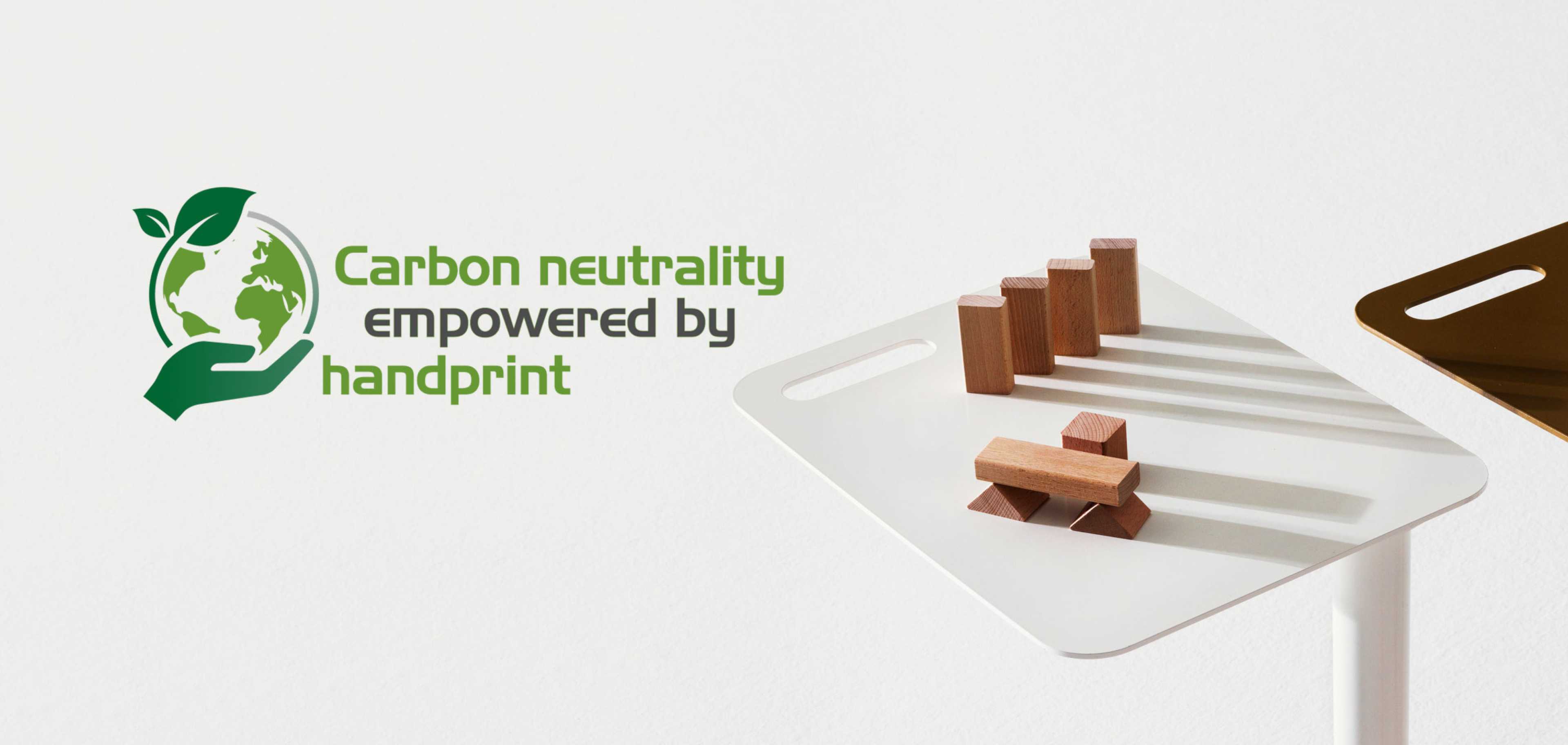Results of the Carbon neutrality empowered by handprint project
The results of the Carbon neutrality empowered by handprint project of LUT University (Lappeenranta-Lahti University of Technology LUT) and VTT Technical Research Centre of Finland were celebrated in a final seminar on February 14, 2024. The project aimed to create procedures for calculating the positive environmental impacts of circular economy solutions, as well as methods for reliably and credibly demonstrating carbon neutrality. Martela joined the research project to develop a reliable way to demonstrate carbon neutrality and to assess the environmental benefits of its Product as a Service model.
Circular economy and flexibility without compromising economic profitability are at the core of Martela's business model. Martela's Product as a Service model that is inline with circular economy thinking was studied in the project. The scientific application of the handprint concept confirmed the most significant environmental impact factors found in WaaS (Workplace as a Service).
Circular economy affects the entire value chain, requiring collaboration, data collection, and information transfer between different actors in the value chain. To facilitate this, Martela identified the need for practical solutions and tools for reliably calculating, communicating, and comparing positive environmental impacts. Handprint calculation provides a good basis for achieving these goals.
Martela's carbon handprint for the Product as a Service model
Martela's Product as a Service model is developed according to circular economy principles, aiming to understand customer needs and design user-specific work environments based on them. Appropriate furniture in a space that meets the user needs increases the utilisation rate and the space usage is optimal in relation to the need. Thus, through Martela's Scope 3 emissions, client companies can reduce their emissions as space efficiency improves.
On the other hand, it is observed that user needs are constantly changing, and the first customer may not have the need for the same furniture throughout its usable lifetime. In response to this, Martela has developed the Workplace as a Service (WaaS) model, which provides the customer with furniture according to their needs, while Martela takes care of refurbishing individual furniture pieces and finding new users for used furniture.
In the Carbon neutrality empowered by handprint project, Martela's exemplary calculation, the carbon handprint calculation of the Product as a Service model, showed that the most significant factor in furnishing is utilising the full potential lifespan of used products. The longer an individual product is in its original use, the smaller its climate impact from furnishing. Thus, Martela's role is not only to manufacture durable and versatile products that are easily refurbished, but also to enable sustainable products to have the longest possible lifespan even in situations where the needs of the first user change. In the Product as a Service concept, transportation also has its climate impact, but it is not essential if the distances between different users do not become unreasonably long.
Carbon handprint and carbon neutrality
As the climate crisis progresses, companies are under increasing pressure to reduce their carbon footprint. Many climate goal frameworks, such as SBTi (Science Based Target), Net-Zero Standard, or ISO 14068-1, aim to guide companies in reducing their climate impacts and compensating for the portion that the company cannot reduce itself. However, these climate goal frameworks do not take into account companies' ability to produce positive climate impacts, such as carbon handprint.
Companies striving to reduce their carbon footprint depend on emission-reducing solutions and often cannot influence the technologies that could develop solutions more quickly. Restricting global temperature rise to 1.5°C or 2°C is critical, especially the speed at which carbon dioxide emissions can be reduced globally.
Some companies and industries may have a natural ability to effectively reduce their own emissions. Conversely, others may have natural abilities to produce and deliver emission-reducing solutions to a wider user base, thereby enhancing the collective ability to mitigate climate impacts, i.e., produce a carbon handprint. From a global perspective, it can even be profitable to increase the carbon footprint of an individual company or industry capable of such.
More information:
Anne-Maria Peitsalo
Director, Sustainability & Quality, Martela
anne-maria.peitsalo@martela.com
+358 40 720 1491
The materials related to the Carbon Neutrality Empowered by Handprint project can be found here.
